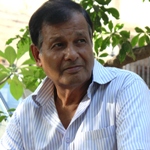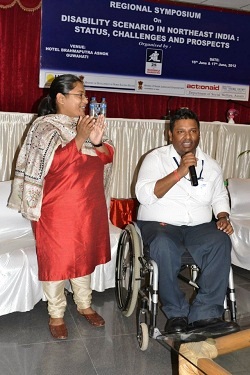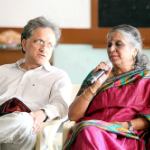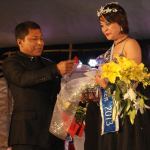"For the first day or two I felt stunned, overwhelmed. I could only apprehend my felicity; I was too confused to taste it sincerely. I wandered about, thinking I was happy, and knowing that I was not. I was in the condition of a prisoner in the Old Bastile, suddenly let loose after a forty years' confinement. I could scarce trust myself with myself."
- Charles Lamb
Find us on facebook: facebook.com/TheThumbPrintMag
I can't think of a better description of the state of mind of a superannuated man as narrated by Charles Lamb above. While this applies to most people serving in various sectors, it particularly applies to a tea planter, who works all his life within the confines of his garden oblivious of scorching sun and squally weather, day in and day out, fighting nature's vagaries and withstanding irascibility of the boss and one fine day he is put out to grass without much ado. His life dramatically changes overnight and leaving behind his well-appointed bungalow with a retinue of servants he proceeds to stay in his home in town bereft of all those amenities which once made him object of envy of the non-tea people. The words of admiration that come his way at the time of superannuation are soon forgotten and in two shakes of a lamb's tale even his memory fades into oblivion.
Because of his prolonged absence from the 'society', he is left with nothing by way of social standing and in his sunset years, he hardly finds an old friend to sit by him in the evening near a fire and talk about old times over a drink . So he invariably jumps at the prospect of a get- together of old planters and tries his best to be there so that he can once more go back to those halcyon days which are now only stuff that dreams are made of.
Planters Society of Eastern India (PSEI) with its Registered office at 46D, Rafi Ahmed Kidwai Road, Kolkata and headed by its president Arun Singh, Managing Director of Goodricke Group of Companies who is also the Vice Chairman of Indian Tea Association, organized a Golf Tournament and a bean-feast at the Tollygunge Club, a landmark in the history of Kolkata, on August 23 last keeping in mind the former planters retired and slackening themselves up in various parts of the country and also senior citizens once associated with tea and now settled in Kolkata.
The century old eighteen hole golf course of Tolly which had seen some of the finest golfers in action, now endearingly welcomed the footfalls of veterans teeing off that afternoon. Although there was no "Hole in one" or an albatross at any hole of three strokes below par, every player played exceedingly well and in the Prize Distribution neatly conducted by vice president Arup Choudhuri and Secretary Ajay Singh, six trophies including four regular, one Senior Citizens and an Invitational trophy were received by the beaming winners. Some of the visitors including B.C. Ponappa from Bengaluru and Ron Sircar from Gurgaon were introduced to a very distinguished audience.
This gathering was reminiscent of a pleasant evening in the summer of 1978 when "Assam Dinner" was held at Savoy Hotel in downtown London which was attended by former planters from various tea growing countries of Southeast Asia including Indians, Sri Lankans and obviously Britons.
The dinner was exclusively for gentlemen who came in formal dinner jackets which were also available on hire at Moff Brothers for 10 pounds an evening. One or two Indians came proudly sporting their sherwanis.
The guests were ushered into a brightly-lit banquet hall resplendent with crystal chandeliers reflecting a prism of light on the paintings on the walls and the fine china on the tables. Each table was covered with spotless linen. There was a floral display on the table top and four to six elegant straight-backed Chippendale chairs around it.
Rana Ali, the young manager of Philobari tea estate was initially awestruck by the elegance of the place. He could hear the conversation and laughter in low pitch and also clinks of glasses as drinks were being poured from the decanters. On a corner table' bottles of champagne were being iced in buckets and were being readied for the ceremonial toast.
As Ali approached the table, the three elderly gentlemen already sitting there warmly greeted him. From the expression and glow in their faces he could make out that they had been transported back to the days of yore in the tea plantations in that warm, mysterious land called Assam.
The gentlemen introduced themselves - R.R.L. Pennal, a former Superintendent of Bishnauth Tea Company at Pertabghur tea estate. Ali recalled that he had also been the Chairman of Assam Branch Indian Tea Association during 1960-61. Then there was R.C. Stammers, who was the factory engineer at Behora tea estate and the third gentleman was A.R. Booth. When Ali introduced himself as the manager of Philobari tea estate, Booth, who was about 80 at that time, told Ali that he was the acting manager of the same estate when World War II broke out.
Along with many other tea planters, he joined the armed forces and fought the war. He did not get the opportunity to rejoin the tea industry. But memories of his days in Assam were fresh in his mind. He enthusiastically began enquiring about how things had changed in Philobari tea estate. Ali was pleased to give all the details about Philobari to the former planter.
Ali also told him about the famous tea bush that had expanded so much in girth and circumference that it had earned the distinction of being perhaps the largest tea bush in the world. Triangular planting was in vogue in those days, and the bush had extended to about eight feet from one end to the other People used to come from various places to see the bush But once soon after pruning, an over - enthusiastic young assistant smeared the bush with aluminium paint to add to its novelty! The result was obvious. The famous tea bush just withered away.
Booth was saddened by Ali's narrative. During his stint in Philobari, Booth concentrated on field management and in the span of just six months, he increased the garden's crop yield from six-and-a-half mounds per acre to eight-and-a-half mounds. Booth proudly asked Ali if they had been able to maintain that level. Ali did not have the heart to tell the old man that by then yield per hectare had gone up to an average of almost 1800 kg per hectare! He politely said that the system of calculation had somewhat changed, but he assured Booth that the garden had been able to just about maintain the standards set by him.
Meanwhile, waiters in red liveries and white gloves went about pouring champagne into the goblets for everyone to propose a toast to the Queen, the President of India and the Chief Guest of the evening, the High Commissioner of Sri Lanka.
The Chairman of the Shaw Wallace Group in London was the Chief Speaker. There were brief speeches followed by polite applause. Then the guests mingled, glasses in hand, renewing acquaintances and exchanging memories. As soup was served, the guests and invitees returned to their tables.
The opening fare was cre'me of mushroom soup and fillet of fish. The main course comprised venison and a salad with hazelnut oil, coleslaw and garlic bread. Each course was served with a different wine. Finally, there was orange souffle' and coffee.
Drinking and talking, however, continued far beyond midnight and the maitre d'hotel had to request the diners several times to leave the banquet hall since they were going to close. He suggested that they could go to the bar if they wished.
But old habits die hard. They did not have the heart to let the choicest leftover drinks go to waste! At last at three in the morning , the party was regrettably over.







































